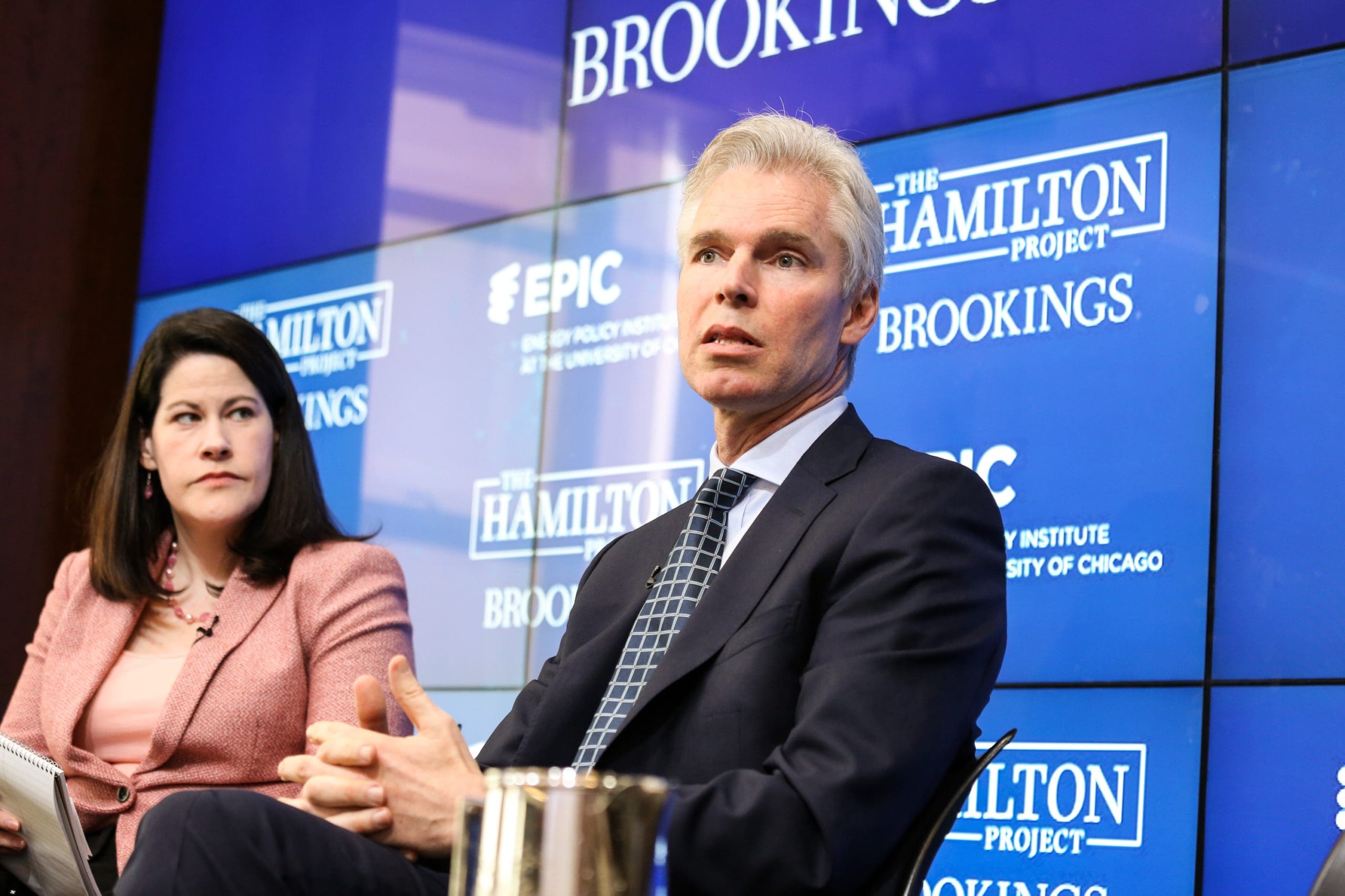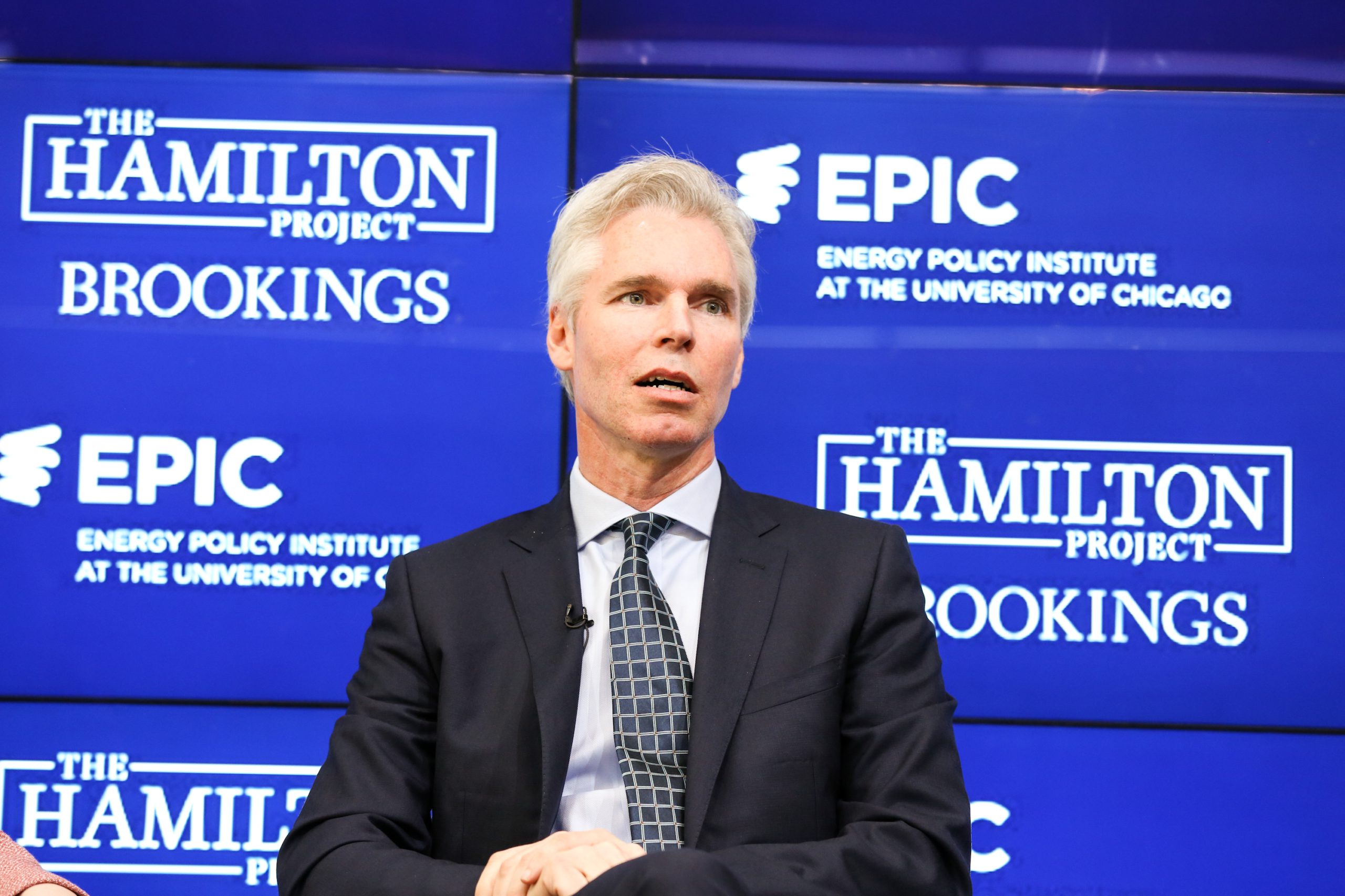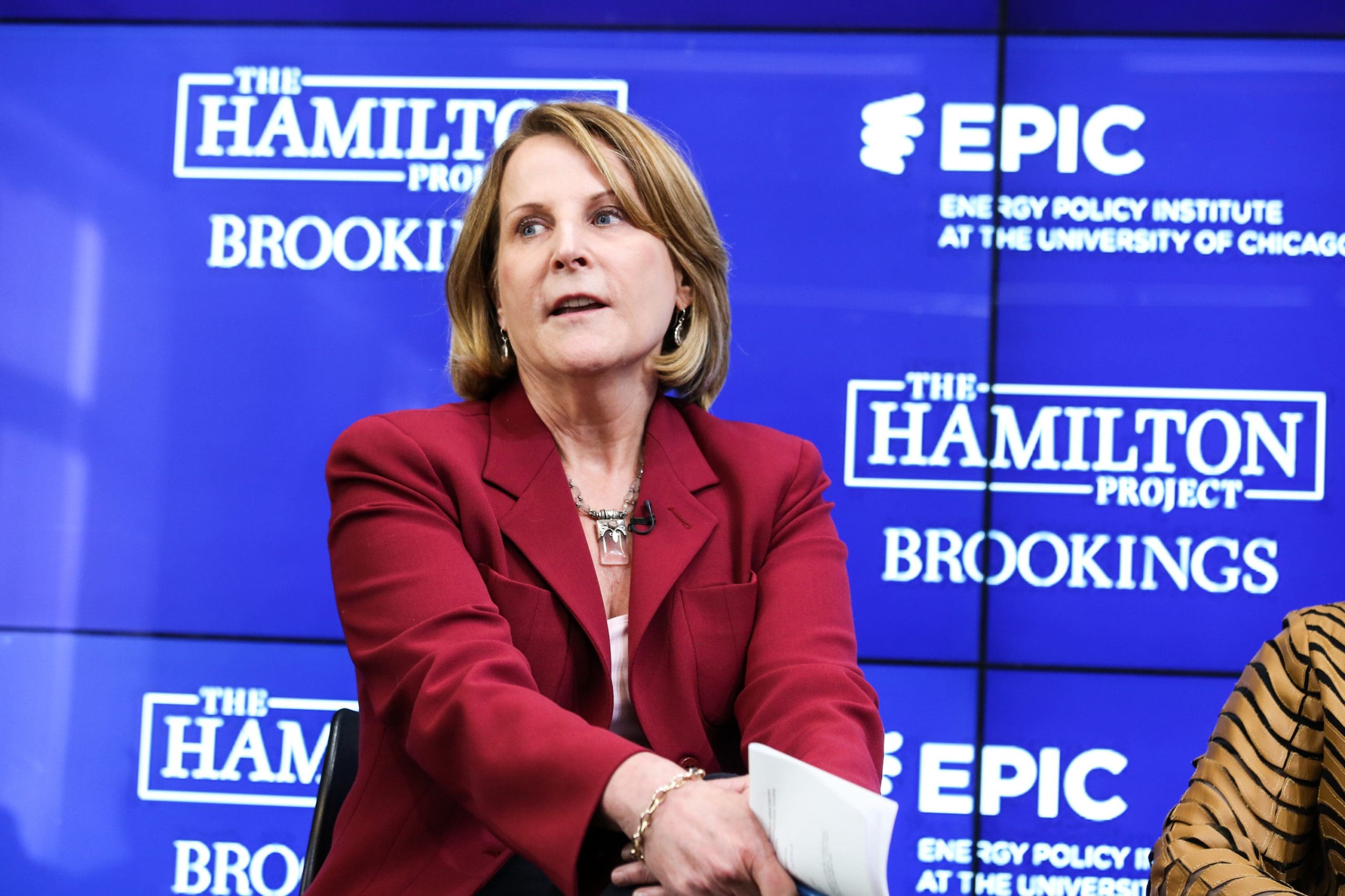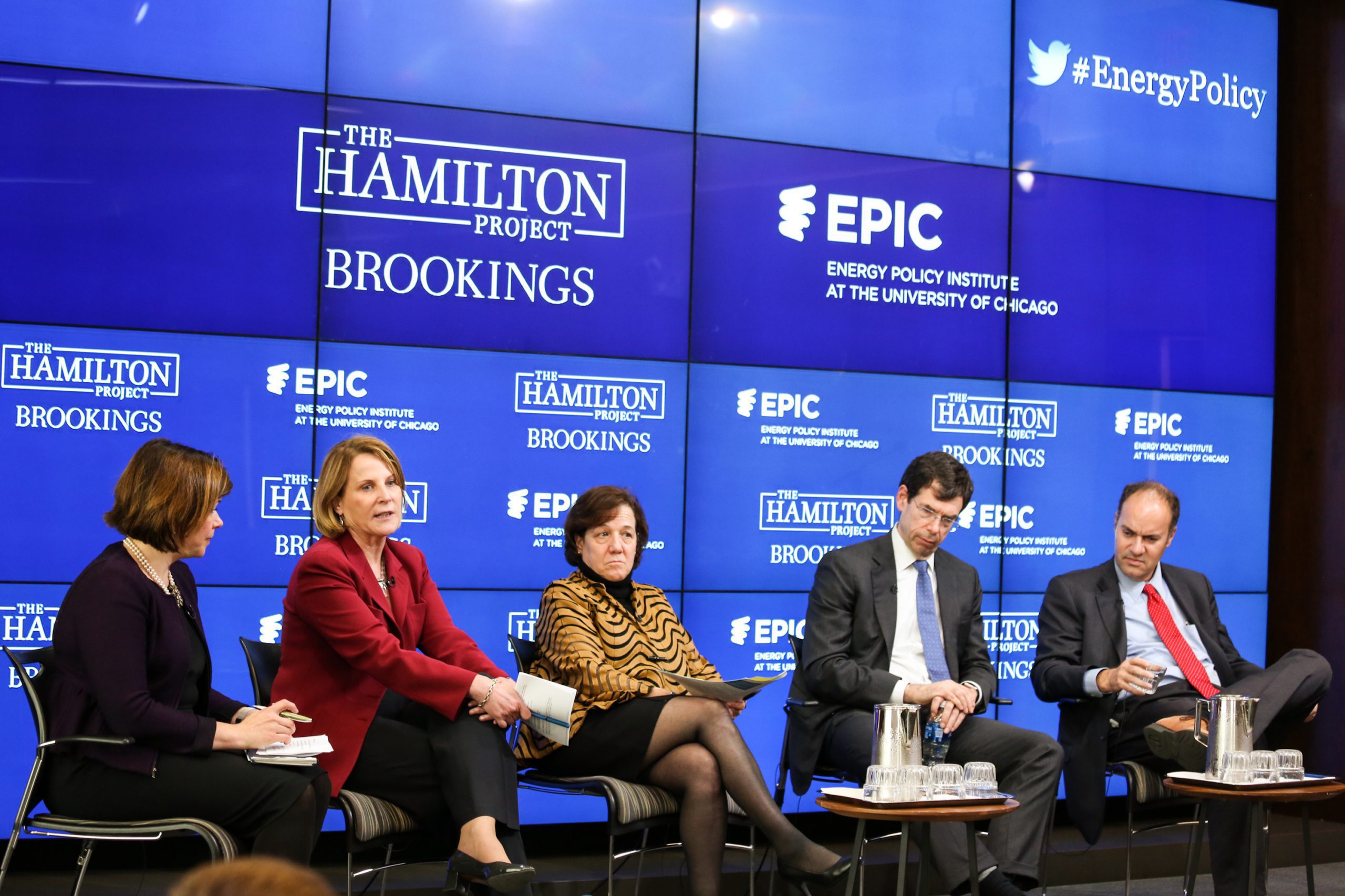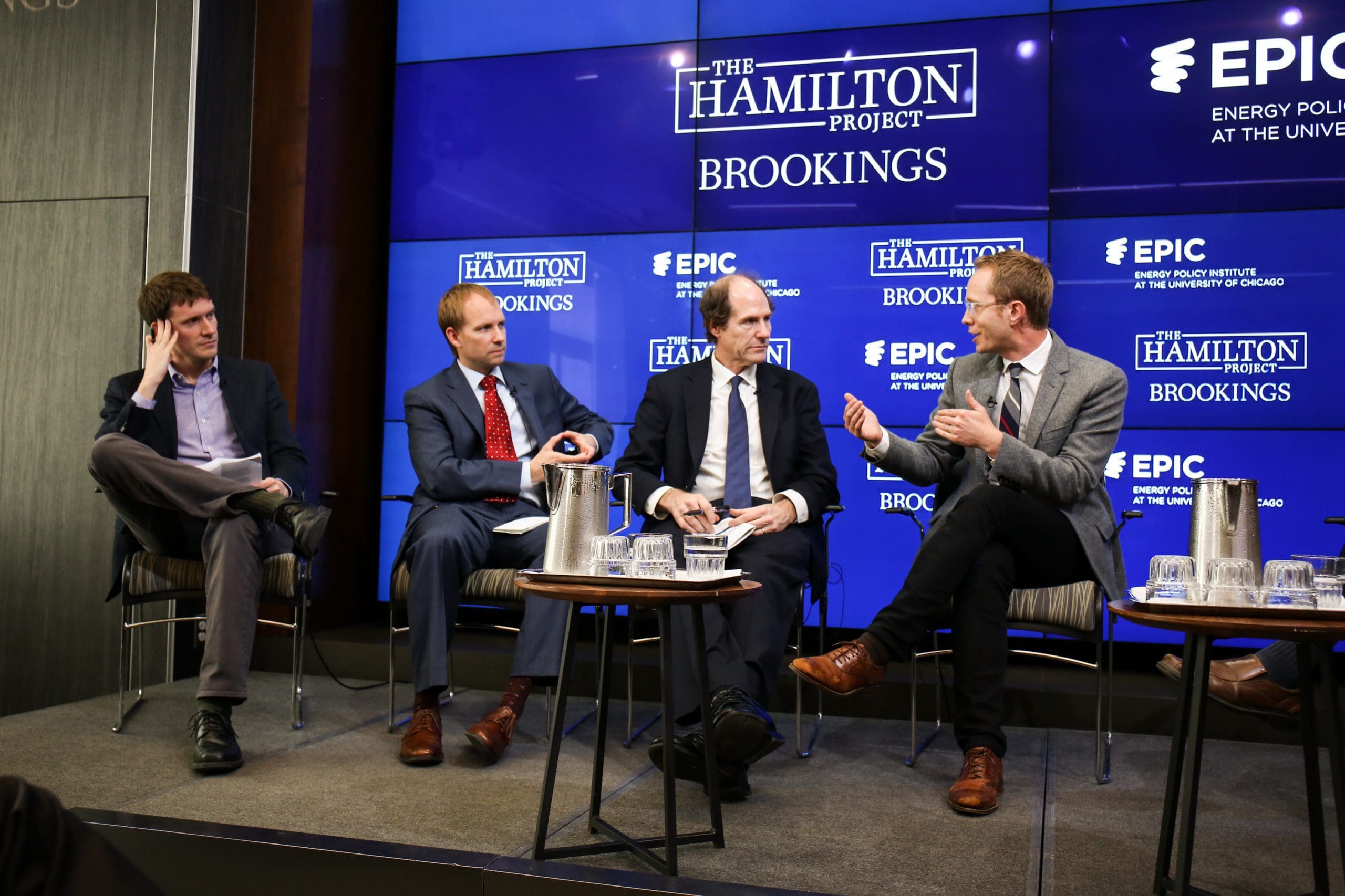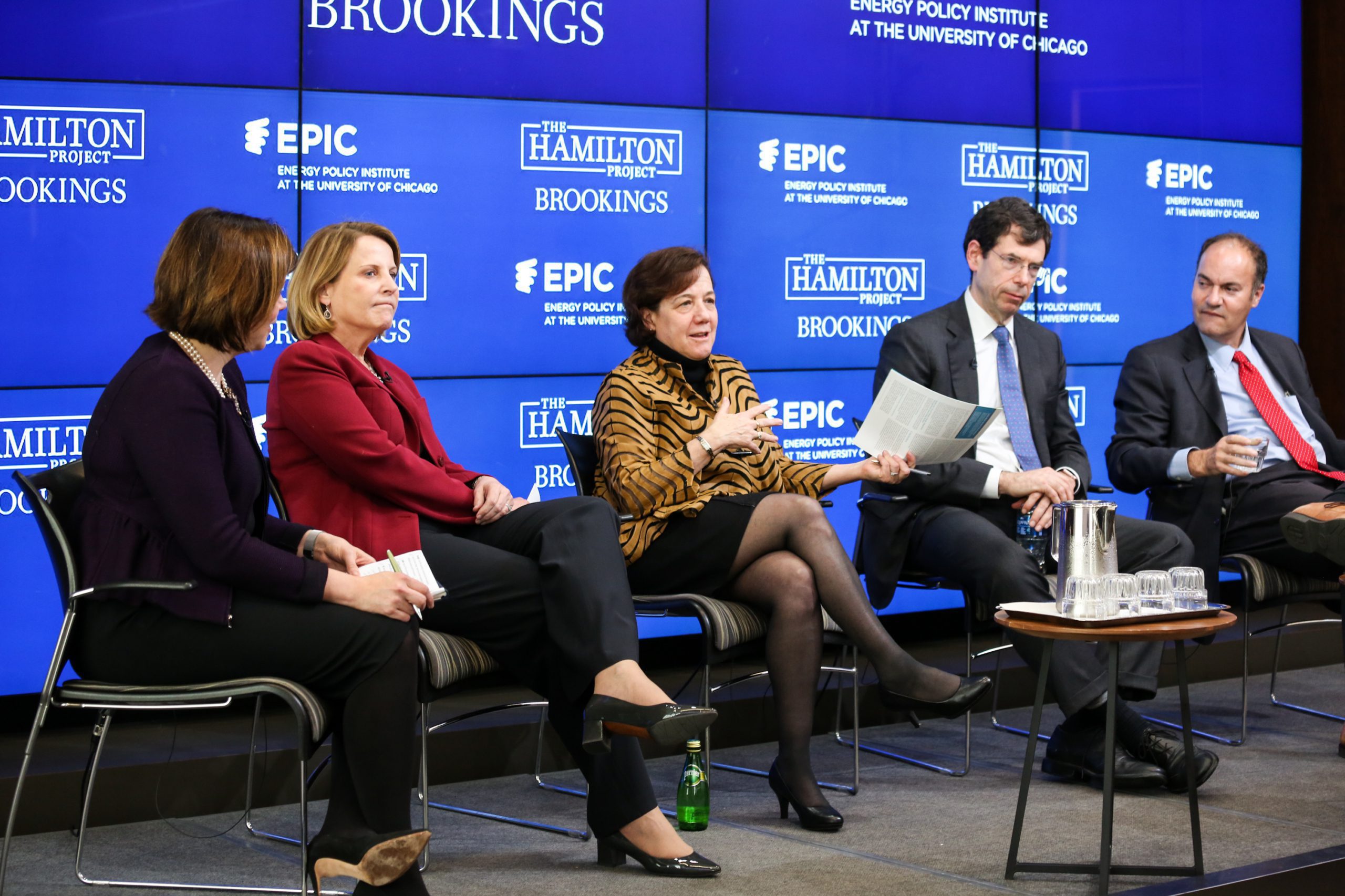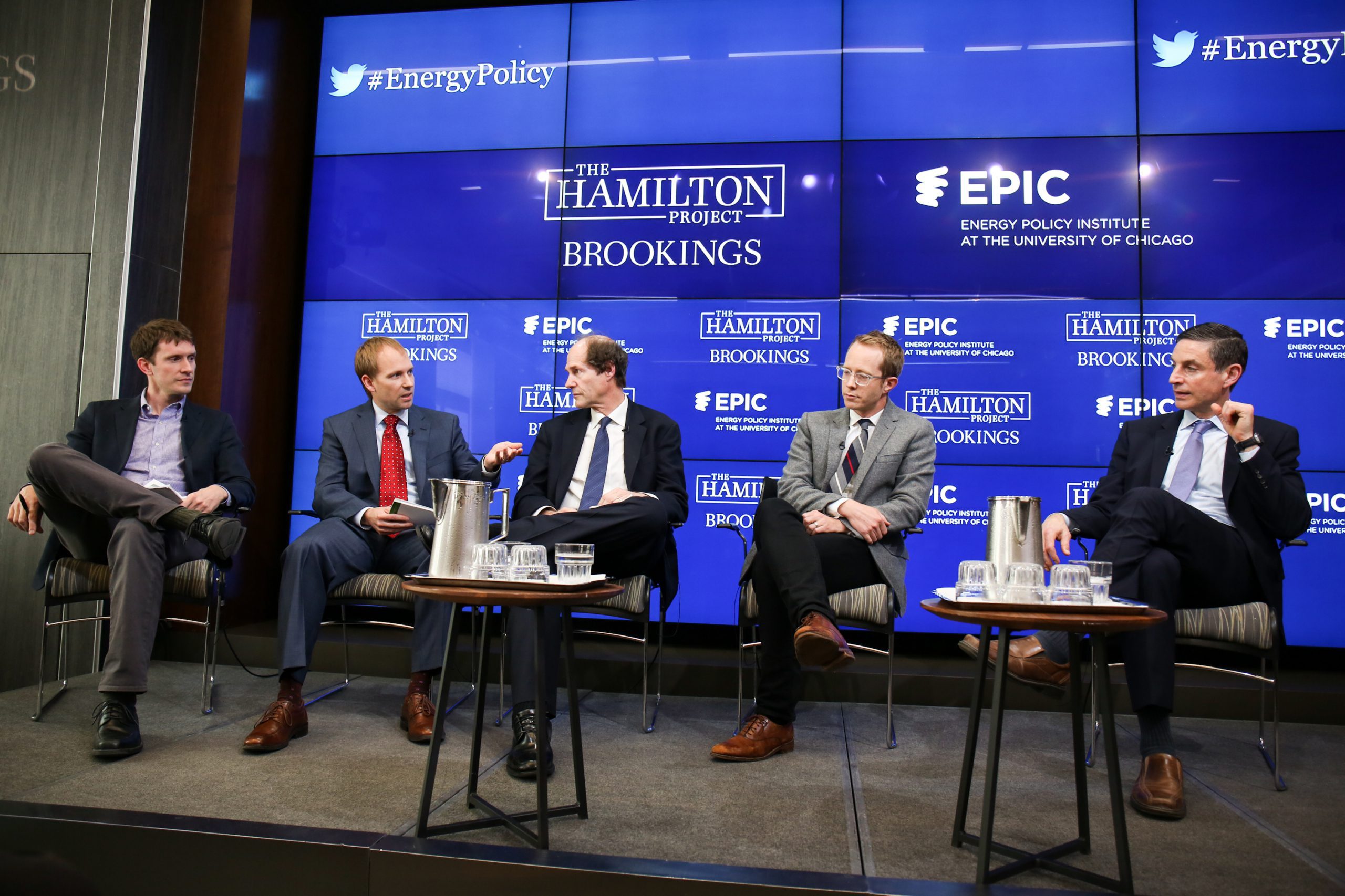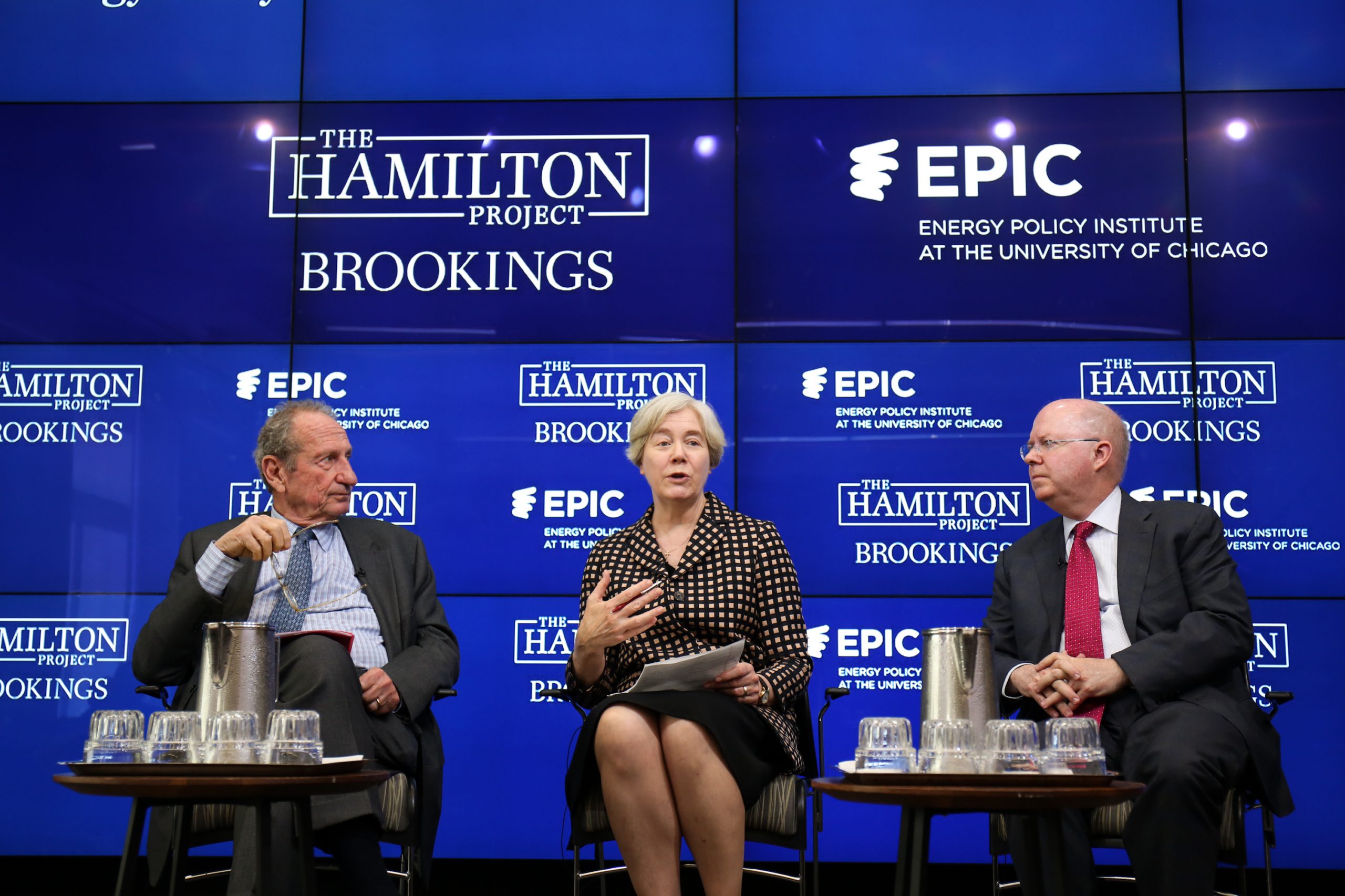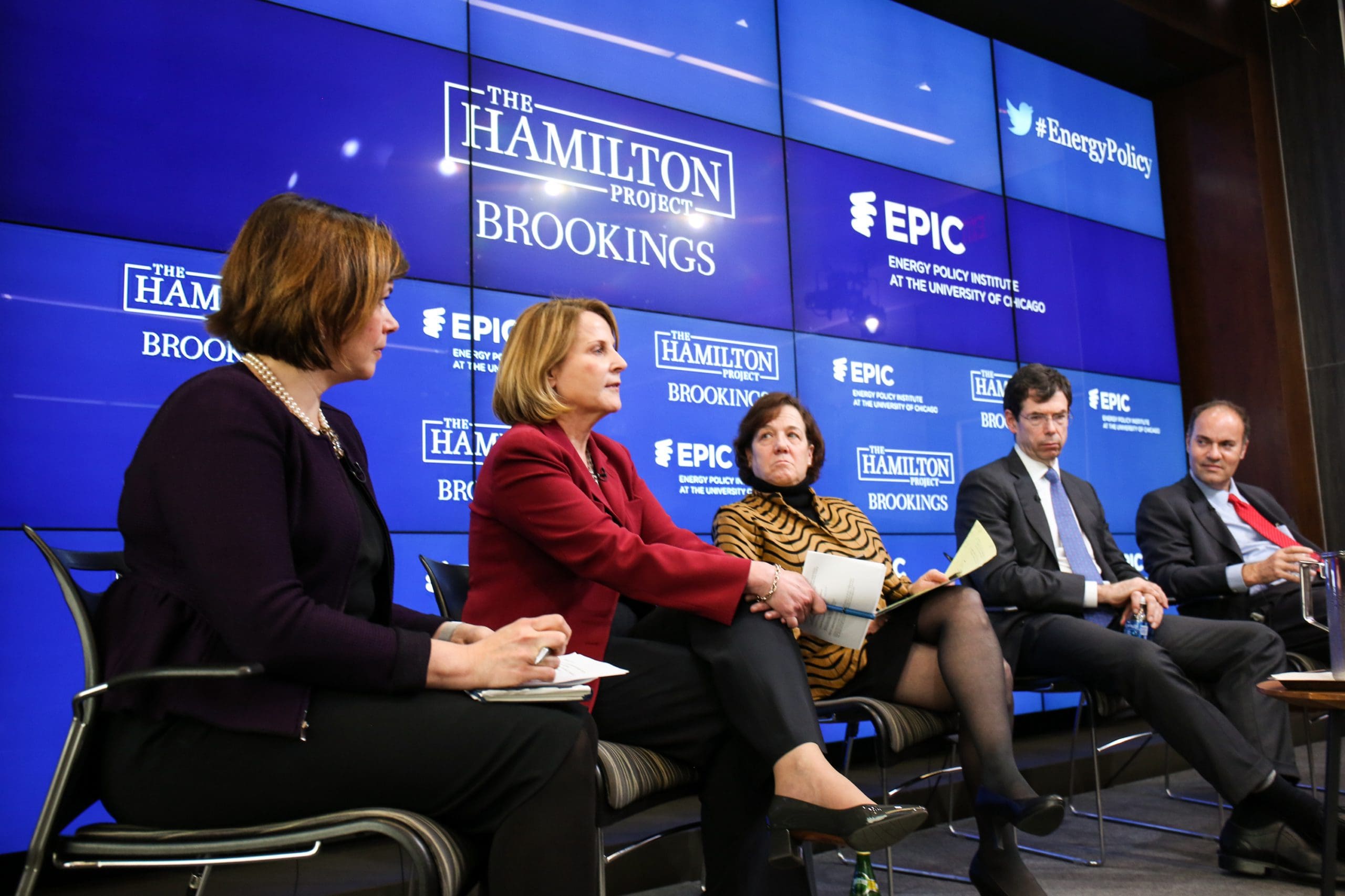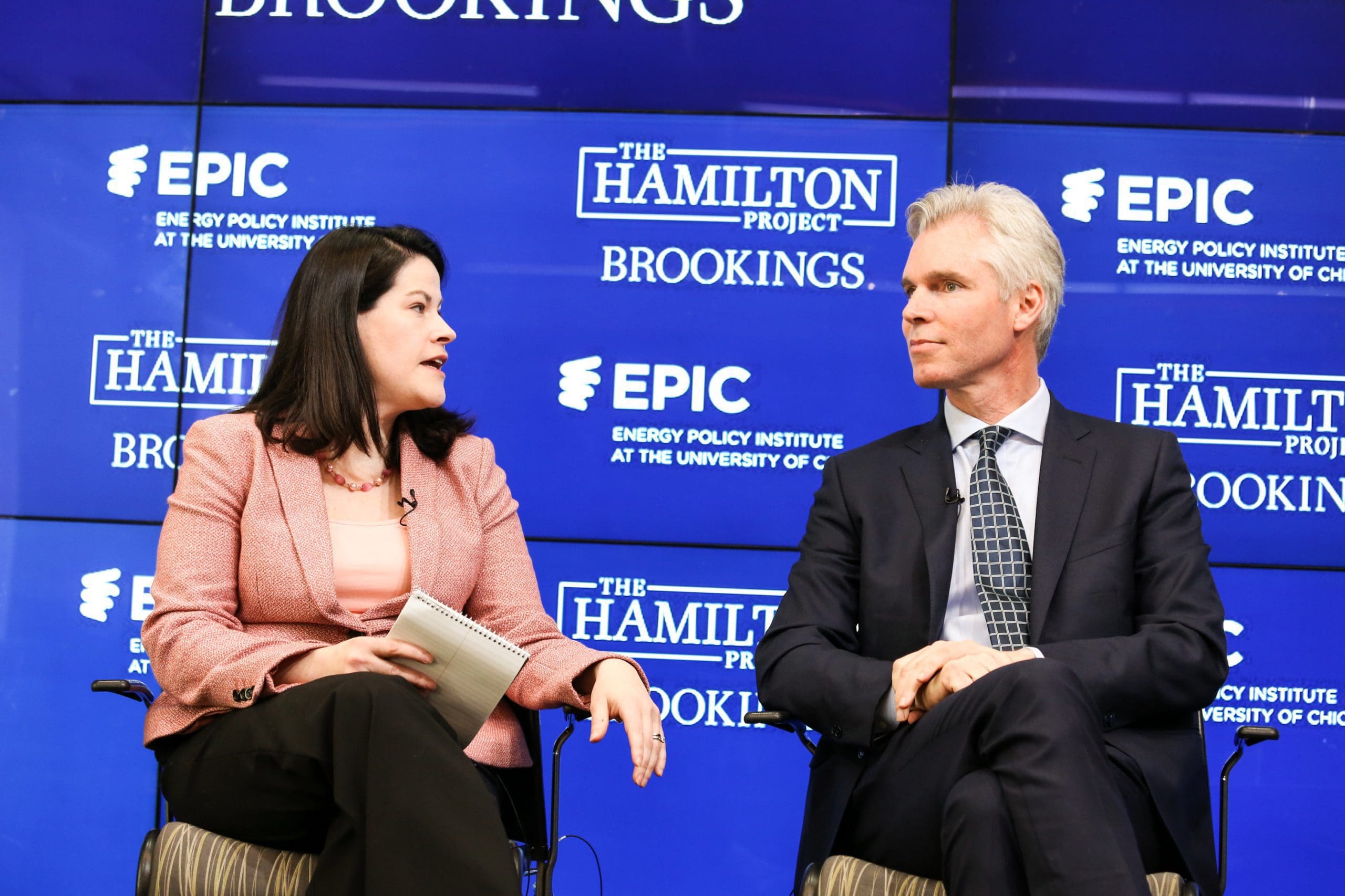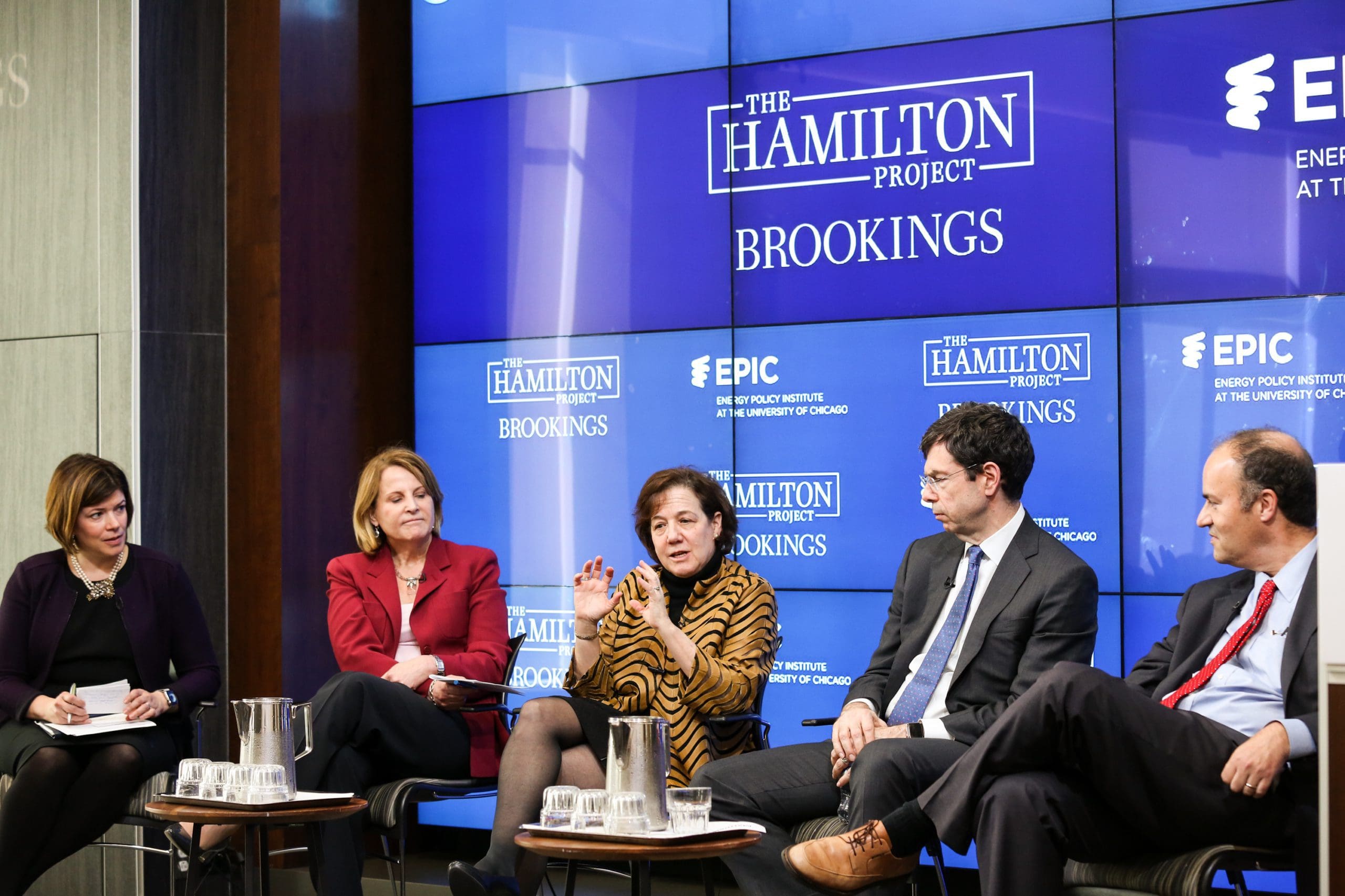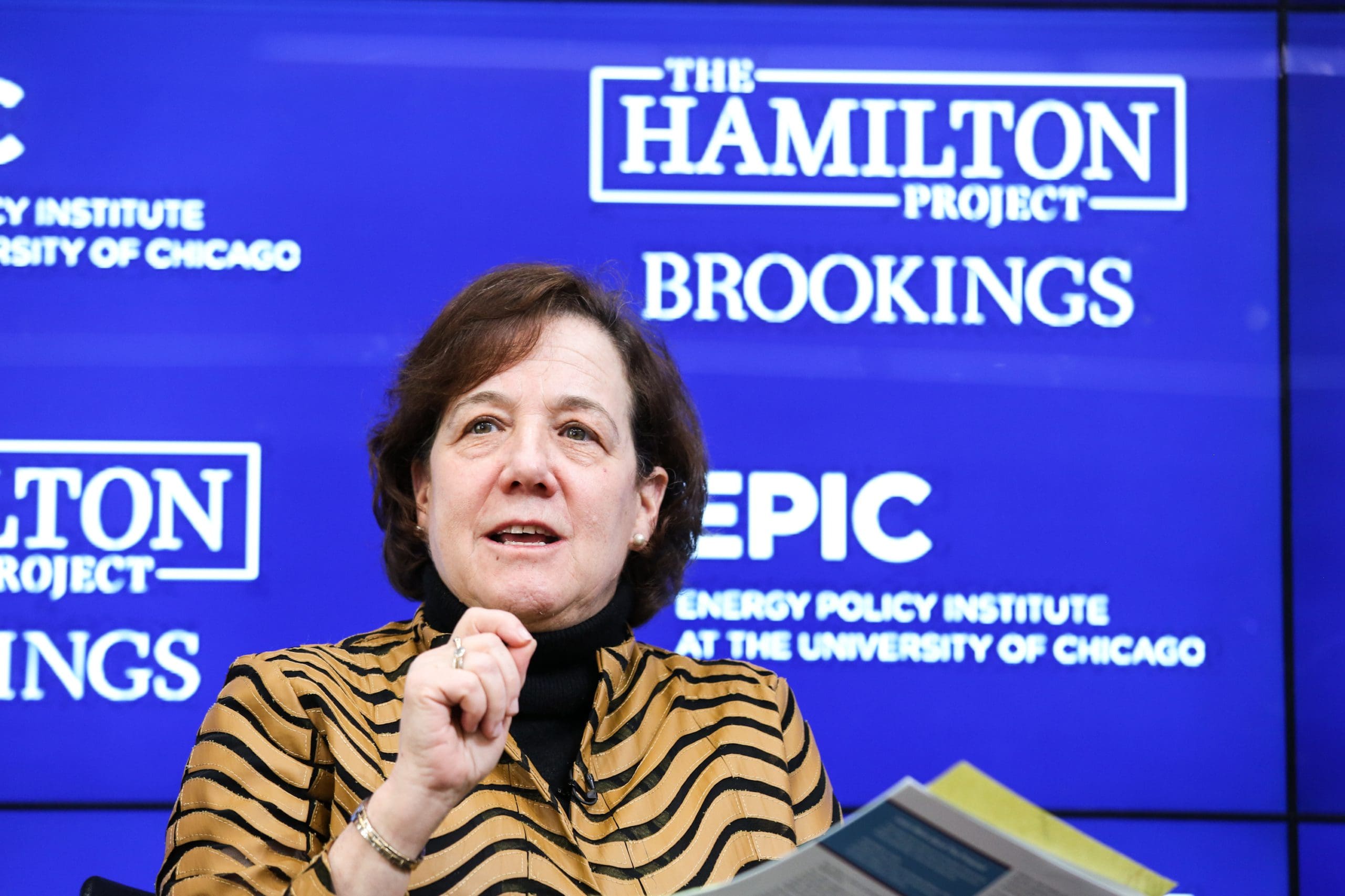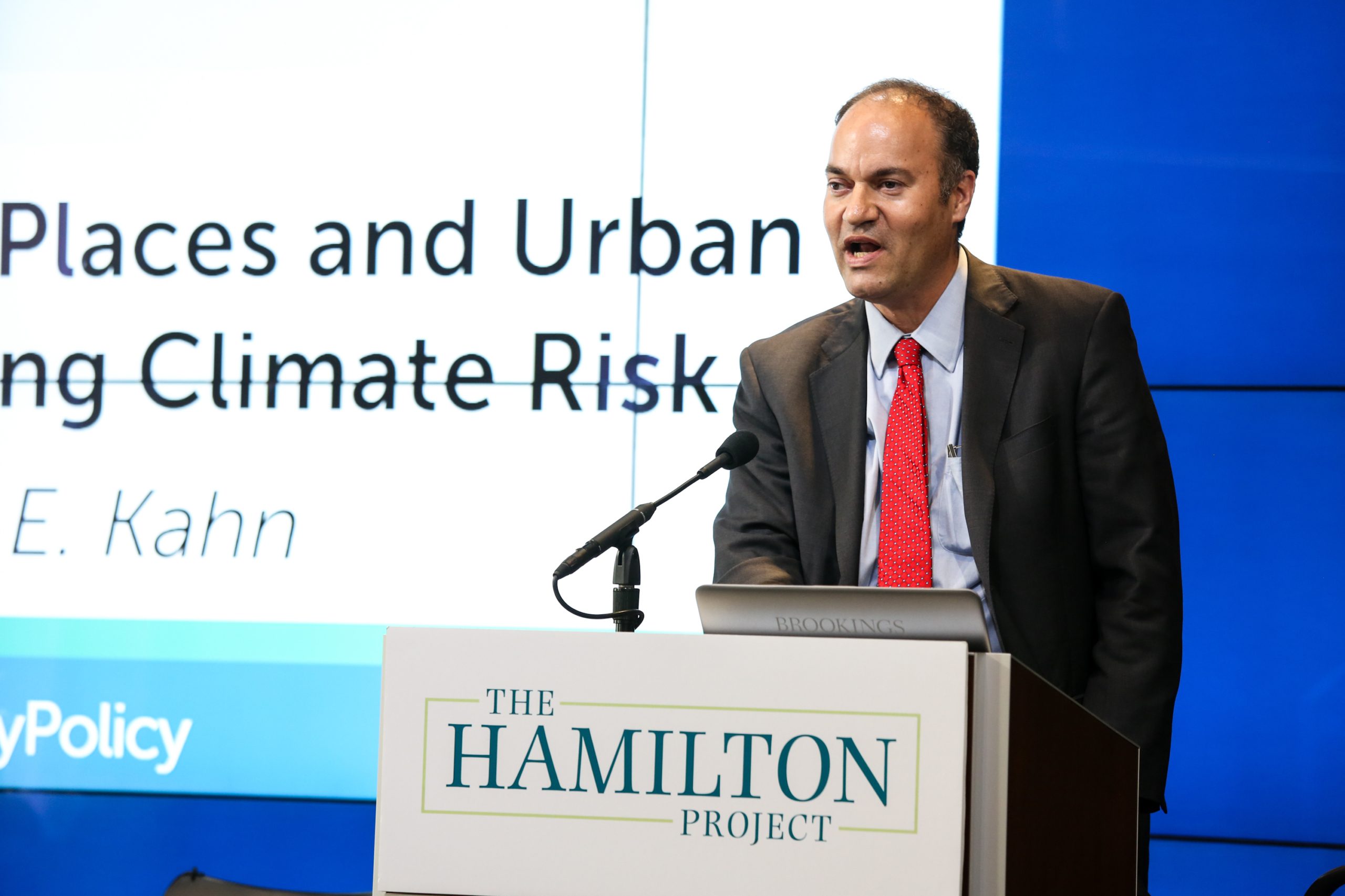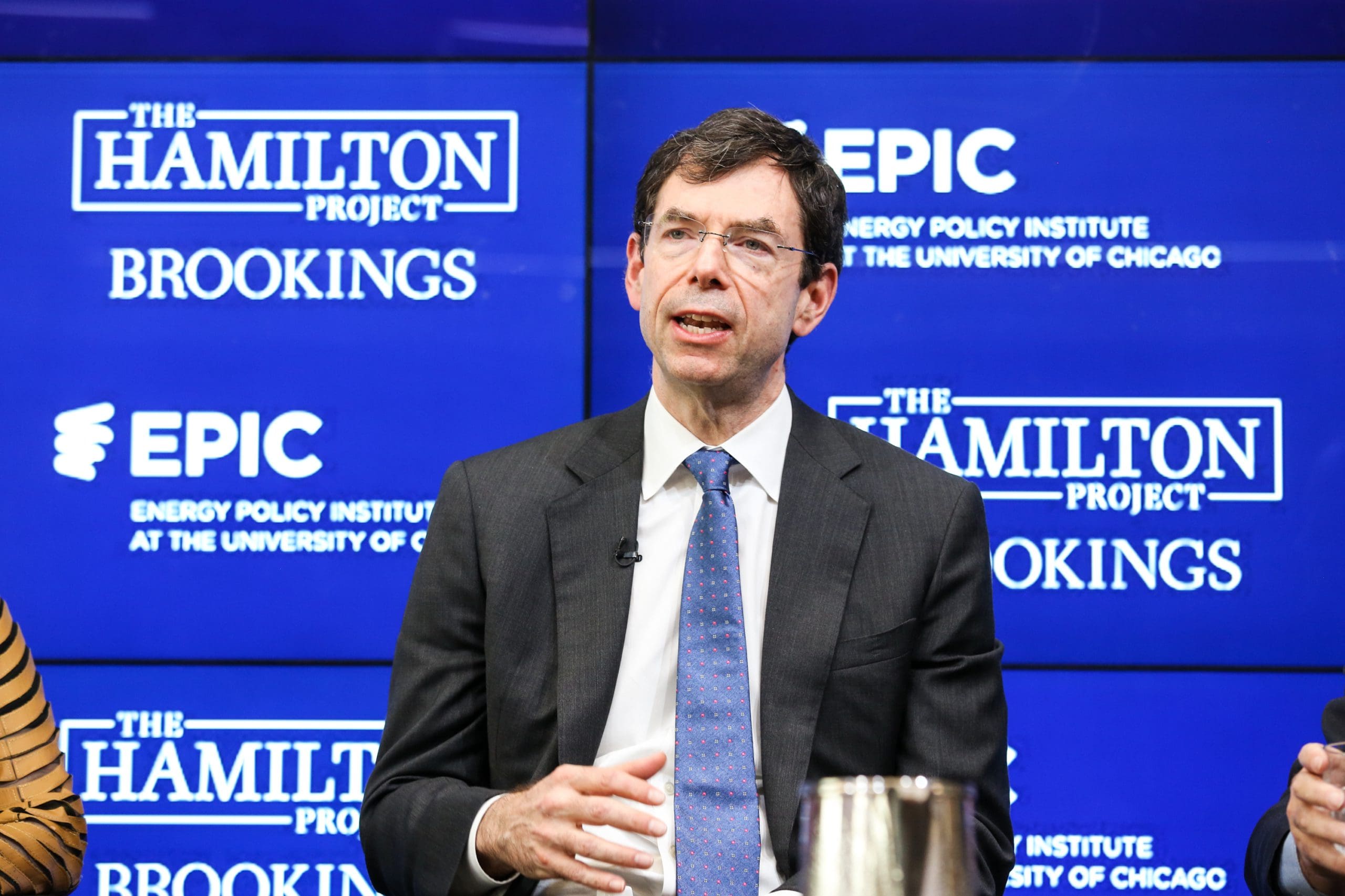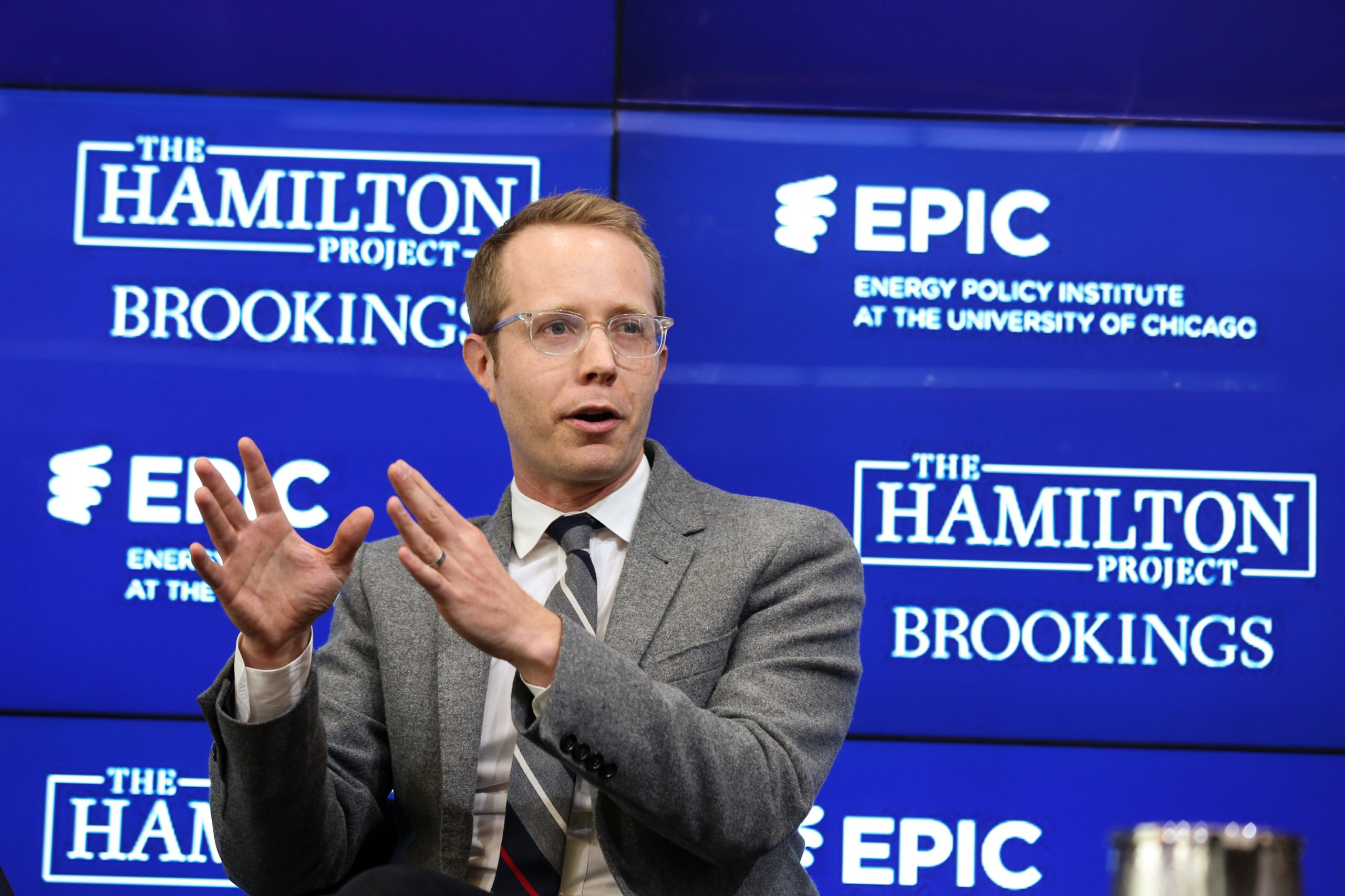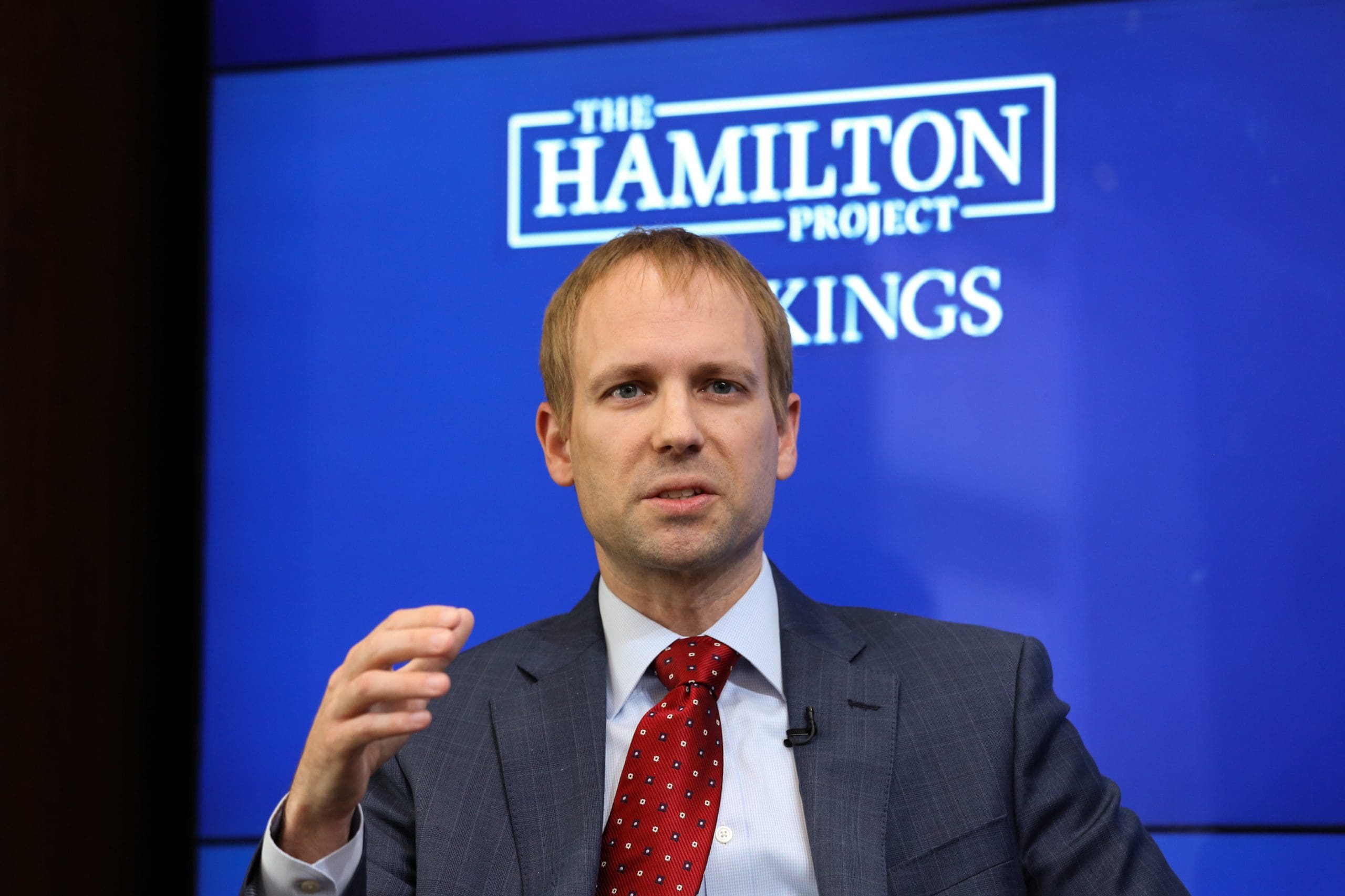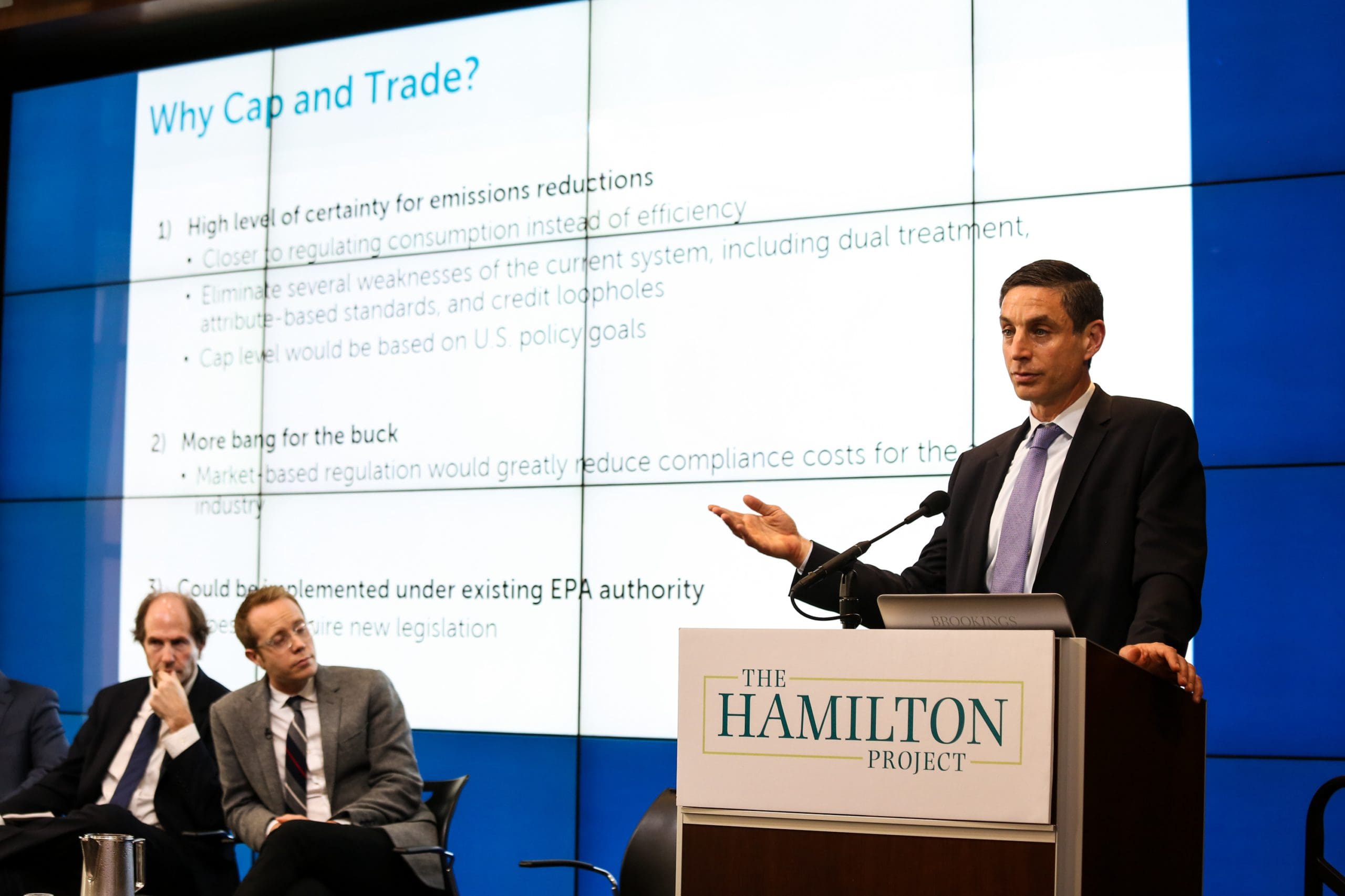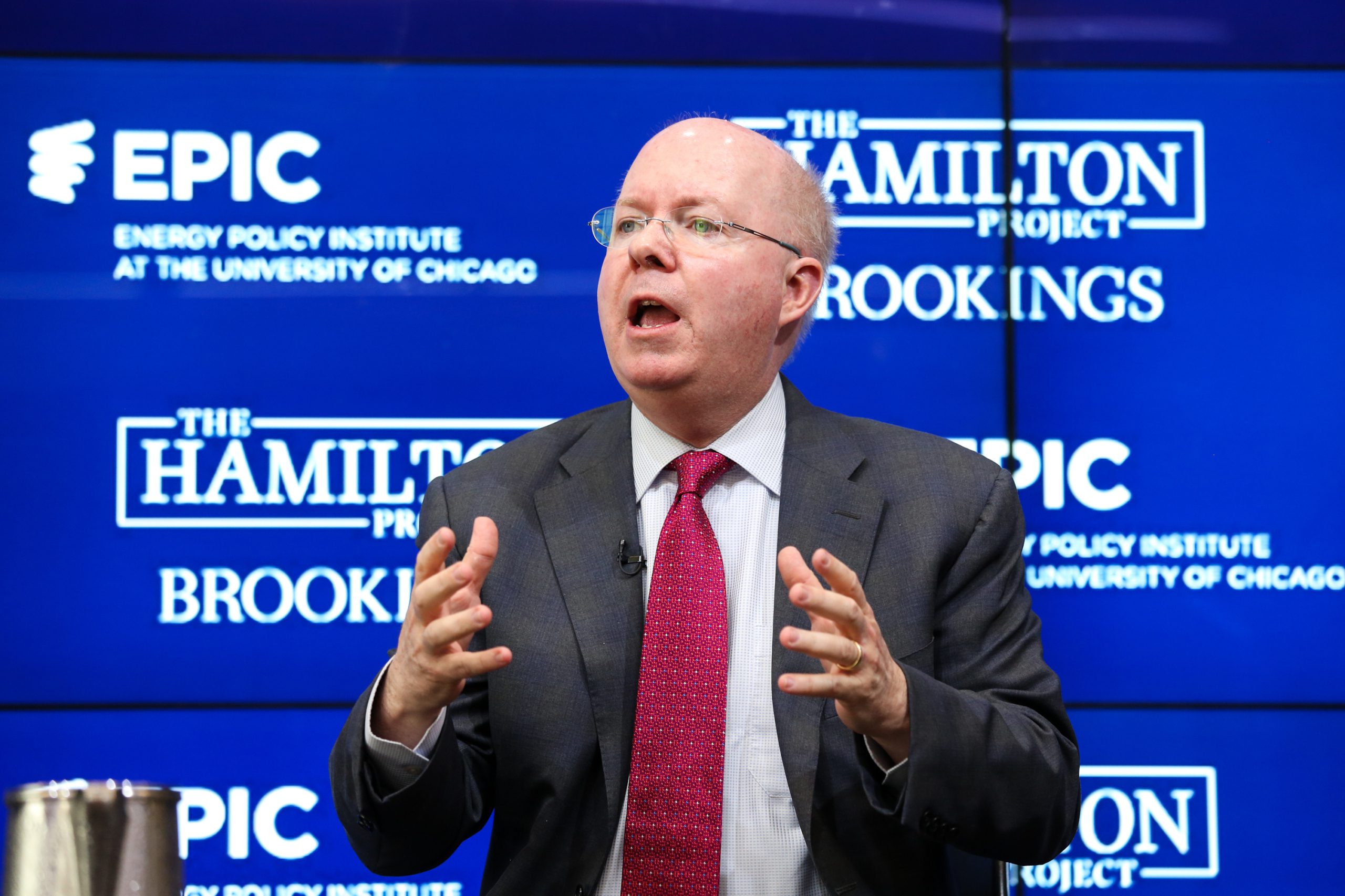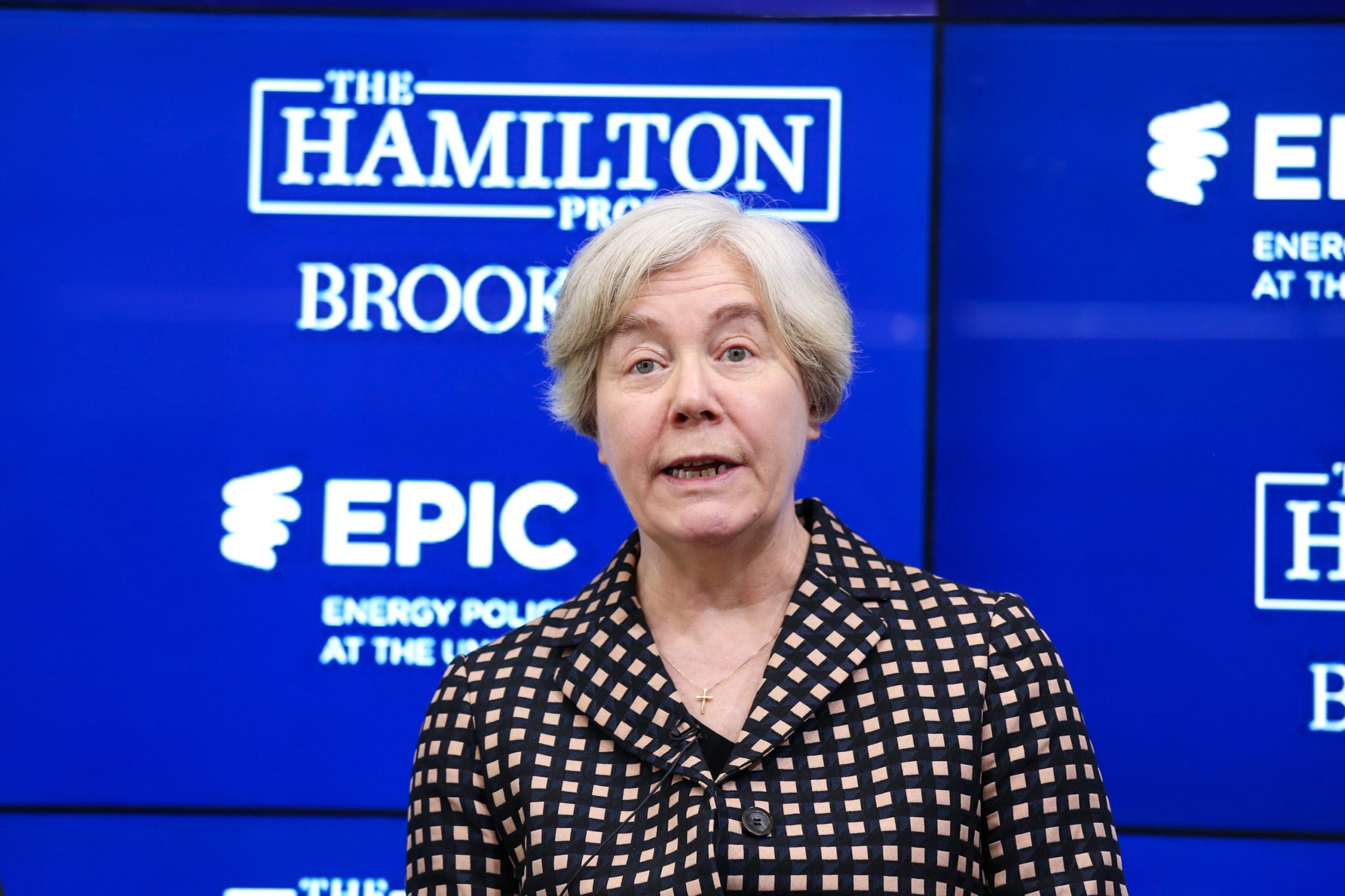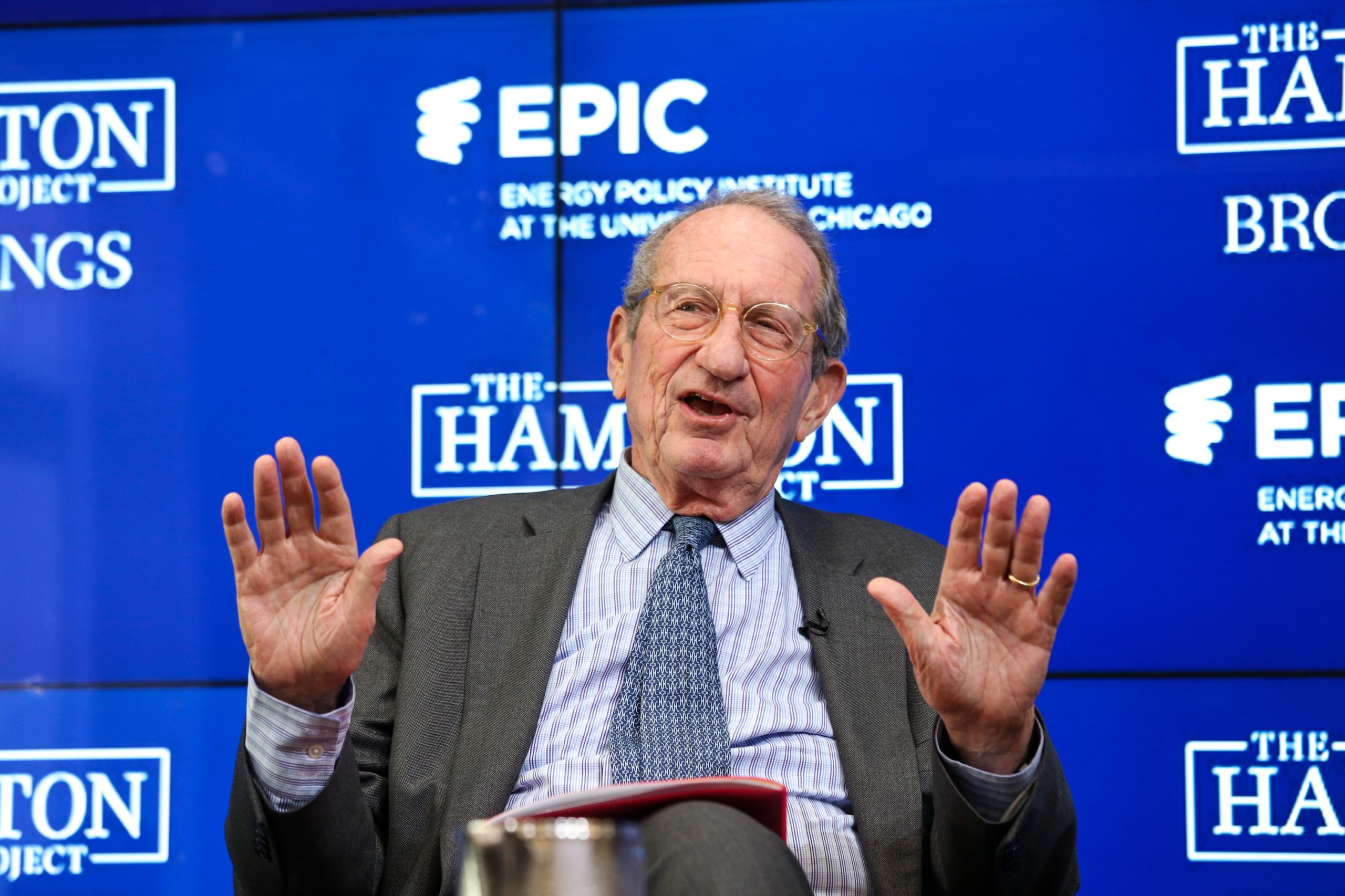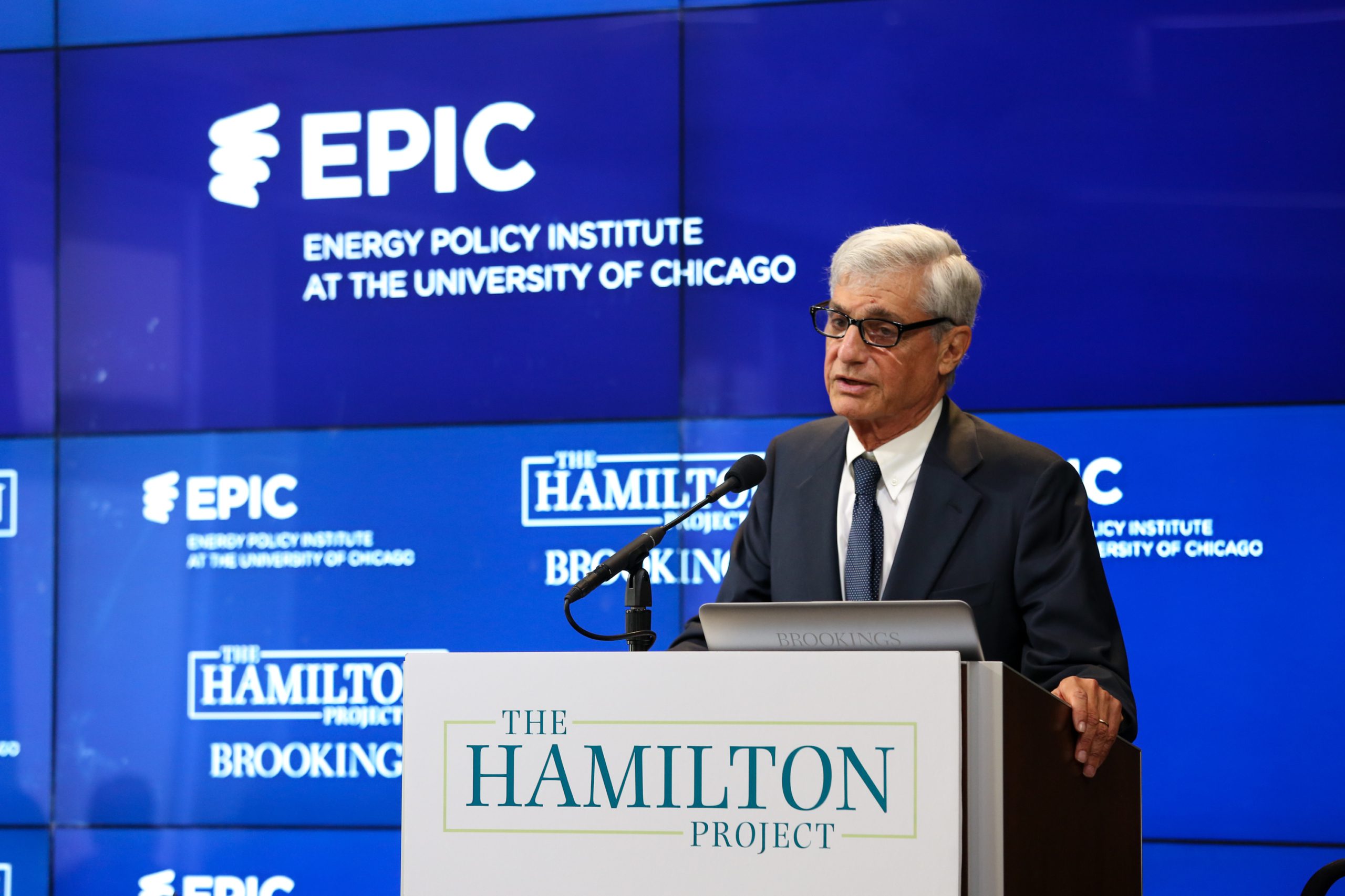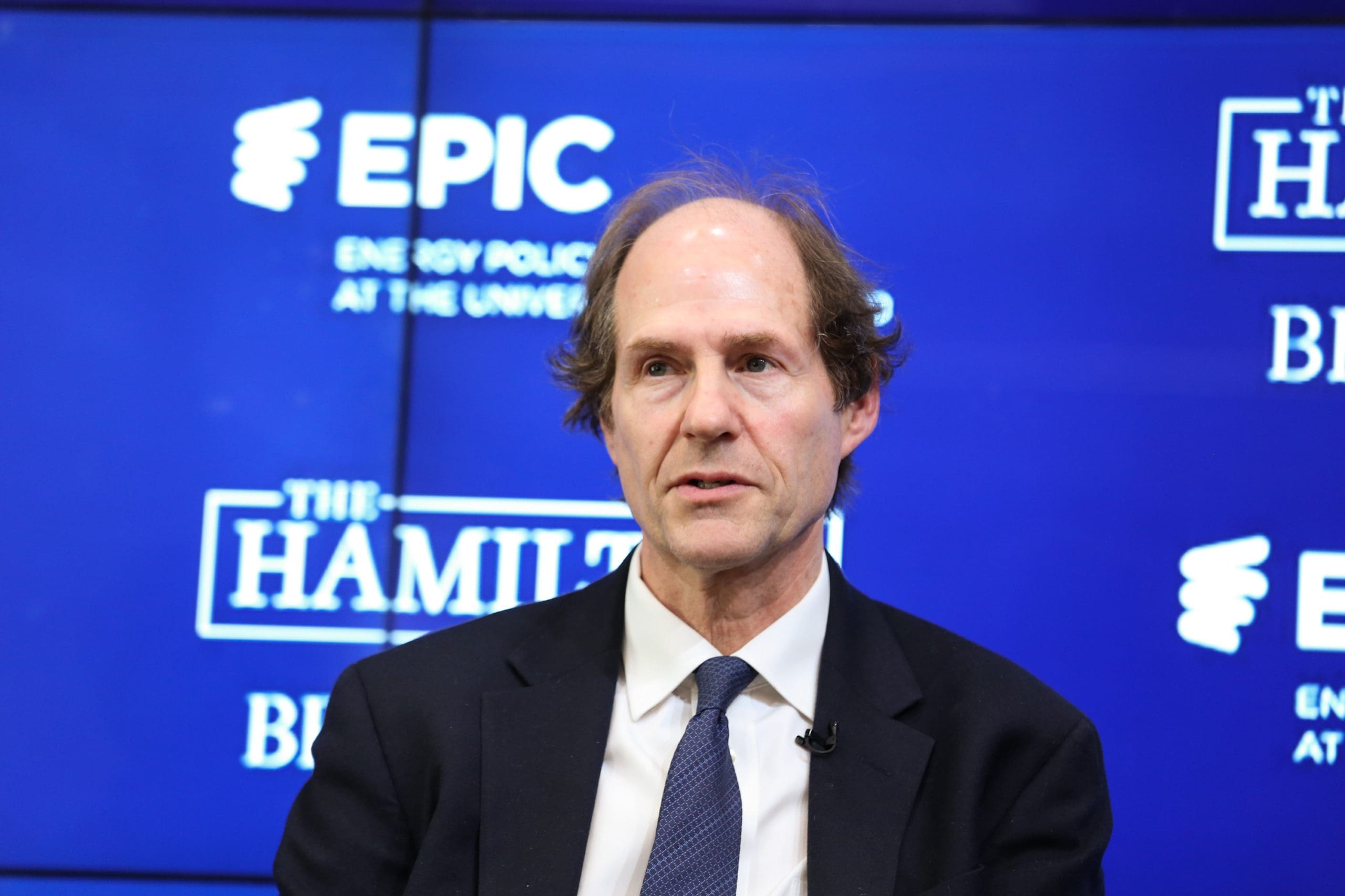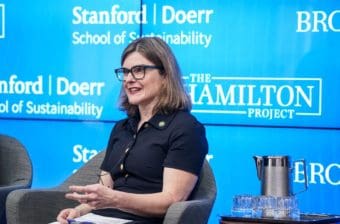Despite an expected shift in energy and environmental priorities in the coming years, several key challenges present clear opportunities for bipartisan cooperation. Low oil prices have slowed improvements in vehicle efficiency, spurred record-high gasoline demand, and undermined core U.S. energy security and environmental goals. American cities and infrastructure are at risk from the challenges posed by a changing climate — and America’s most abundant and scalable baseload energy resources need to be cheaper and cleaner. In response, market-based reforms, infrastructure investments, and research and development are solutions that would allow us to both tackle climate and environmental ambitions and support economic growth.
On March 27, The Hamilton Project at the Brookings Institution and the Energy Policy Institute at University of Chicago (EPIC) co-hosted a forum to explore the best approaches to address these challenges. The forum began with opening remarks by former U.S. Treasury Secretary Robert E. Rubin. A fireside chat and three roundtable discussions followed, featuring panelists including: Ted Halstead (Climate Leadership Council), Mindy Lubber (CERES), James L. Connaughton (Nautilus Data Technologies), David Schwietert (Alliance of Automobile Manufacturers), Cass Sunstein (Harvard University), John Deutch (Massachusetts Institute of Technology), Trevor Houser (Rhodium Group), Ellen D. Williams (University of Maryland), Steven H. Strongin (Goldman Sachs), Alice Hill (Hoover Institution), Brad Plumer (Vox), and Jennifer A. Dlouhy (Bloomberg News).
In conjunction with the event, the Hamilton Project and EPIC released two new policy proposals: a proposal by Michael Greenstone (University of Chicago), Cass Sunstein (Harvard University) and Sam Ori (University of Chicago) recommending a market-based solution for fuel economy regulation; and a proposal by Matthew Kahn (University of Southern California) offering policies for enhancing urban resilience to new climate risk.
Agenda
1:30 PM Opening Remarks
Robert E. Rubin
Co-Chair, Council on Foreign Relations;
Former U.S. Treasury Secretary
1:40 PM Roundtable Discussion: An Agenda for Energy Research and Development
Discussant: Ellen D. Williams
Distinguished University Professor, Department of Physics and IPST, University of Maryland
Discussant: James Connaughton
President and CEO, Nautilus Data Technologies
Presider: John Deutch
Institute Professor, Massachusetts Institute of Technology
2:15 PM Roundtable Discussion: A Market-Based Approach to Vehicle Regulation
Author: Michael Greenstone
The Milton Friedman professor in Economics and Director, Energy Policy Institute University of Chicago
Discussant: Cass R. Sunstein
Robert Walmsley University Professor, Harvard University
Discussant: Trevor Houser
Partner, Rhodium Group
Discussant: David Schwietert
Executive Vice President, Alliance of Automobile Manufacturers
Moderator: Brad Plumer
Senior Editor, Vox
3:05 PM Break
3:15 PM Roundtable Discussion: Investing in Resilient Infrastructure
Author: Matthew Kahn
Professor of Economics, University of Southern California
Discussant: Steven H. Strongin
Head of Global Investment Research, Goldman Sachs
Discussant: Alice Hill
Research Fellow, Hoover Institution; Former White House Senior Director for Resilience Policy
Discussant: Mindy S. Lubber
President and Founding Board Member, Ceres
Moderator: Diane Whitmore Schanzenbach
Director, The Hamilton Project and Senior Fellow, Economic Studies, The Brookings Institution
4:05 PM A Conversation on the Conservative Case for Carbon Pricing
Discussant: Ted Halstead
Founder, President and CEO, Climate Leadership Council
Moderator: Jennifer A. Dlouhy
Energy and Environmental Policy Reporter, Bloomberg News


